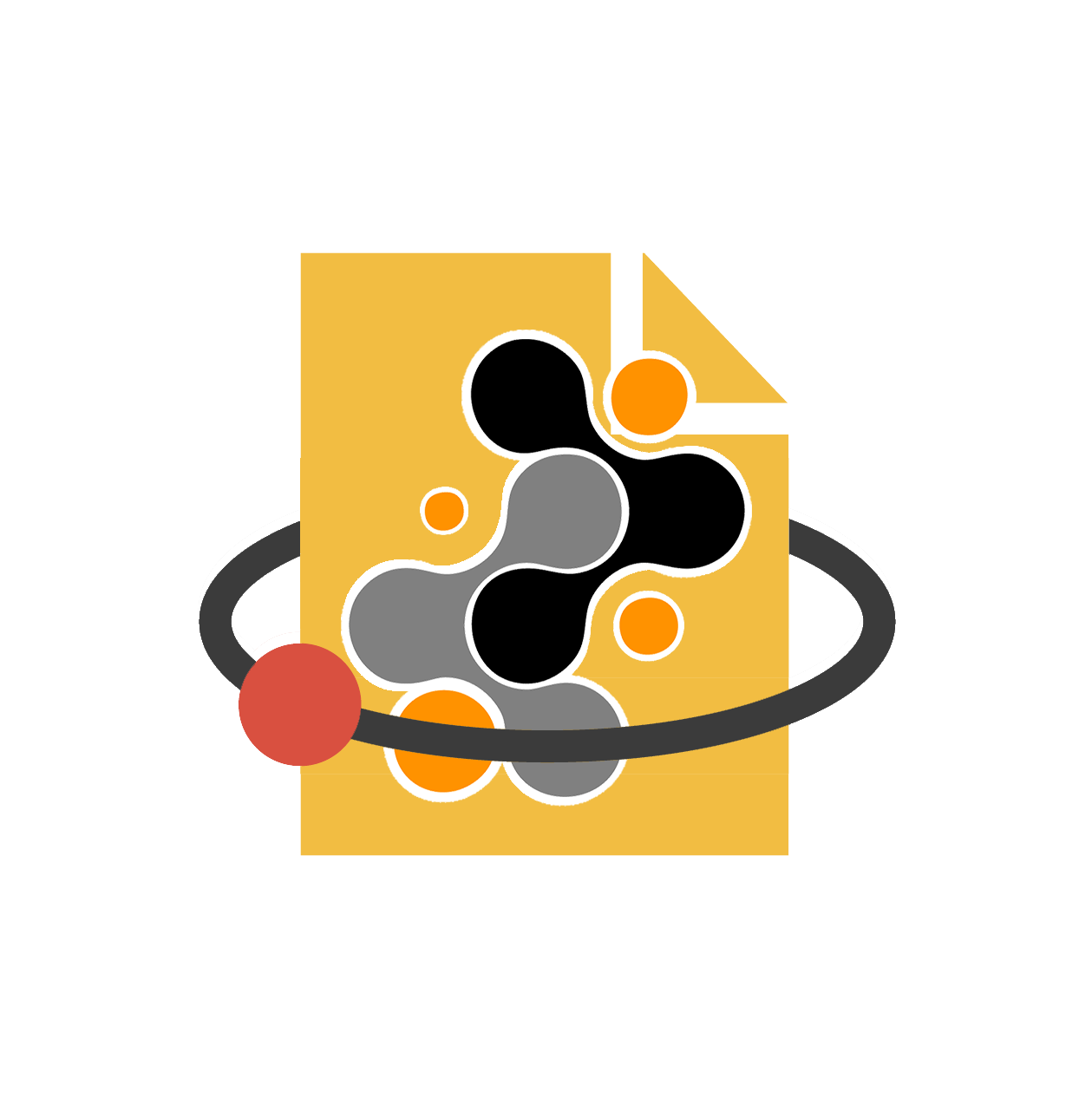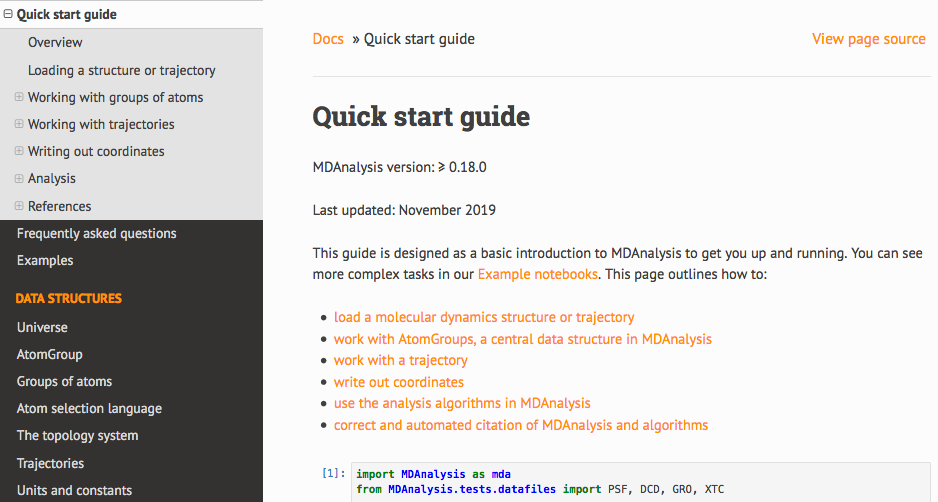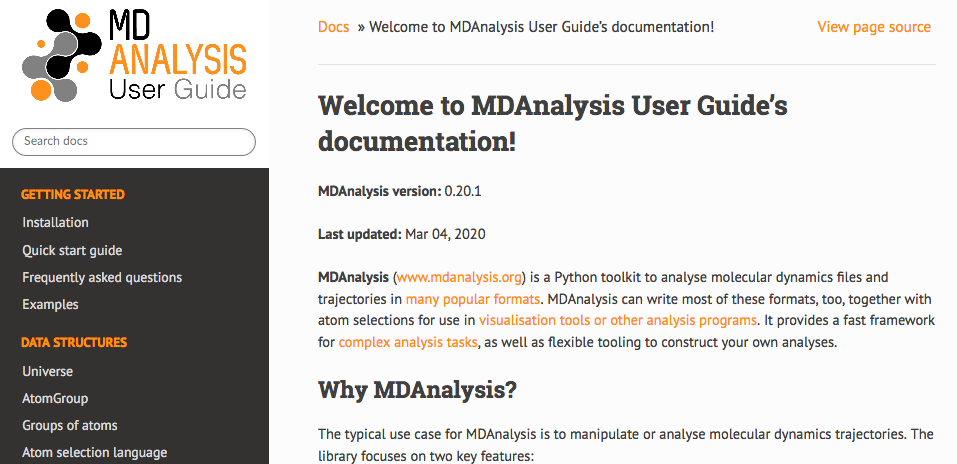GSoD 2019: The New User Guide
10 Mar 2020 The
inaugural Google Season of Docs 2019 has wrapped up. Google
sponsored a technical writer to work with an open source project to
work on their documentation. MDAnalysis was one of the GSoD
projects with
technical writer @lilyminium.
The
inaugural Google Season of Docs 2019 has wrapped up. Google
sponsored a technical writer to work with an open source project to
work on their documentation. MDAnalysis was one of the GSoD
projects with
technical writer @lilyminium.
She successfully completed her project A user guide structured by topic. She shared her thoughts in her blog post Project report: A user guide for MDAnalysis.
Quick Start Guide
Especially for new users, @lilyminium created the new Quick Start Guide, which is now the recommended first tutorial when learning MDAnalysis.
User Guide
The new User Guide is meant to make it easy for all users to quickly become productive with MDAnalysis.
It starts with a Getting Started section with installation
instructions, examples, the Quick Start Guide, and a FAQ. A discussion
of the key data structures follows because understanding how to
work with Universe and AtomGroup is fundamental to MDAnalysis. A
section on selections explains how to create AtomGroups. The
next chapters explain working with trajectories (including the new
on-the-fly transformations) and general
input/output. Most analysis classes are described and
explained with examples, making the analysis section especially useful
for anyone who “quickly wants to run analysis X” on their own
trajectories.
The User Guide also documents a number of important internals and usage patterns as well as the development process, which makes it a key reference for intermediate users and developers.
As one seasoned core developer said: “Amazing, reading this I can still learn new things about MDAnalysis!”
You can already see the pre-1.0 version of the new User Guide on our website; an expanded version of the User Guide will be released together with the upcoming 1.0 release of MDAnalysis.
More to come…
Furthermore, the new MDAnalysis docs will follow the layout and style of the User Guide.
Finally, @lilyminium will continue working with MDAnalysis as our newest MDAnalysis Core Developer!

